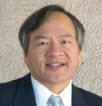By Janlee Wong, MSW
NASW expresses it sorrow and concern regarding the horrific mass shooting in San Bernardino at the Inland Regional Center.
Our deepest sympathy goes out to the injured victims, their families, and the friends and colleagues of the victims. We also express our concern and care to the greater San Bernardino and southern California community.
As more news becomes available, it appears that the murderous rampage was concentrated on County Public Health employees and as far as has been reported to us by the two nearby social work schools that have interns or former students working at the regional center (social services for the developmentally disabled) no one they know were physically injured.
Thanks to everyone for their expression of concern. Like everyone, we’ll learn more as more information becomes available.
We all suffer trauma when mass shooting incidents happen and we all need to find ways for us as well as for everyone to work through this trauma.
The County of San Bernardino is California’s largest by geography with a population of over 2 million. County government (including mental health and social services) has over 17,000 employees.
We’re confident that our colleagues in county mental health, social and disaster services, as well as the statewide agency for the developmentally disabled (regional centers) are developing plans for or already offering services for those directly traumatized by the event including services for those injured, their families, the families of the victims (we don’t yet have information on them), and co-workers. Hopefully there will be consideration for services and trauma education for the community as a whole.
We can also help by providing guidance for those affected by secondary trauma and for parents and children.
Below is a link to a NIMH website on what adults can do and how to work with children:
This event will stir the public discourse on gun control, terrorism, and how to help the public feel safe. There will be conversations by law enforcement and homeland security. Some of our politicians in office and running for office will bring up immigration, refugees and military strike options even though at this time we don’t know what the connections are, if any.
There is no justification or rationale for these murderous acts and no one can excuse the killers. But as social workers, we are obligated to try to understand the psychology, conditions and behaviors that might bring people to such a state that they would commit mass murder. We do this so as to offer ideas about prevention and early intervention.
Here are some basic ideas that we could promote:
- Urge discussions on this tragedy as a way to help people work through their trauma. When the killers are killed, we’ll never fully know what the motive was. But we must try. As social workers who have both micro and macro perspectives, we should urge inclusion of community psychology, political, social and economic justice issues in the discussion. Urge ideas and actions that are peaceful and collaborative. There will be plenty of other people talking about using violence to address violence.
- Words and opinions in the public and social discourse matter. Some people are so upset, they are ready to blame, finger point and urge destructive solutions without any analysis of what happened and why. We need to urge more care with words and opinions so as not to worsen the situation where whole communities, fellow Americans, immigrants and refugees are blamed without any regard to the trauma they are suffering.
- We must do more to show that the United States, as the world’s greatest military and economic power, care about the well-being of all people around the world to offset the hate and violence that a few have against us.
Let’s think about this and how we can help as individuals and professionals address a global culture that accepts violence as a solution to problems.






